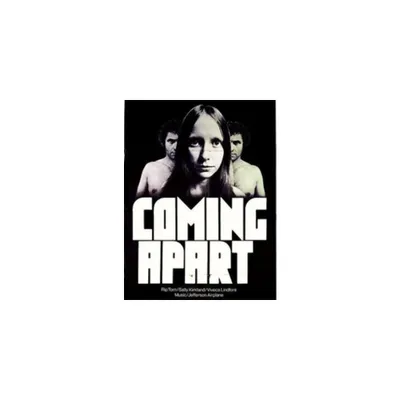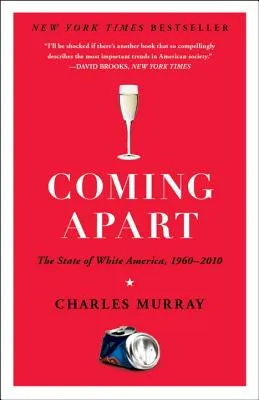Home
Coming Apart
Loading Inventory...
Barnes and Noble
Coming Apart
Current price: $26.99


Barnes and Noble
Coming Apart
Current price: $26.99
Loading Inventory...
Size: OS
*Product Information may vary - to confirm product availability, pricing, and additional information please contact Barnes and Noble
During her time with
Sonic Youth
,
Kim Gordon
's songs were always among the most experimental, so it's no surprise that of the debut albums released by the band's former members, hers is the most challenging.
Coming Apart
, her first album with guitarist
Bill Nace
as
Body/Head
, is a bold, expansive announcement of who she is after spending so much of her career with one of alternative rock's most legendary acts. While there are hints of
here and there -- "Actress"' beginning sounds a little like a funhouse mirror version of "Teenage Riot"'s intro -- an unmistakable feeling of freedom resonates through the album. Liberated from trying to fit her vision into the context and confines of her previous band and freed from fitting her songs to a drumbeat,
Gordon
feels more present on
than ever before; it's no coincidence she sounds strangely ecstatic when shouting "Can't Help You"'s refrain. Relying only on her voice and dense waves of guitar, she and
Nace
make the most of noise and silence on these expansive tracks, sounding just as eloquent when whispering and delicately plucking as they do when they're wailing and wringing out feedback.
's vocals are a revelation throughout, spanning rage, anguish, and sensuality as on the cover of "Black Is the Color of My True Love's Hair," which rivals their transformative version of "Fever" in emotional ambiguity. While the sly wit that peppered her
songs is missing, it doesn't have a place in the emotive, intuitive territory she and
map out on these songs. Indeed, one of
's greatest strengths is how cathartic it is. At times,
's earlier work bordered on overly theoretical, and while
is certainly steeped in theory -- after all, the album's title comes from a book about French director
Catherine Breillat
, another artist making challenging, feminist-based work about the disconnection between women, their bodies, and their sexuality -- on these songs
embodies these issues instead of describing them. The results are often undeniably, unashamedly harsh: On "Last Mistress,"
drags out the words "she marks her territory" so slowly and painfully that it seems like it should leave marks on something, while "Frontal" builds from sensuality to shame to fury before she wails, "You would have killed me/Had you not raped me." Yet she also finds ways of healing these wounds on "Ain't Got No Life," where every item she doesn't have (friends, sweaters, perfume) sounds like more weight off her back, and every item she does have (heart, soul, blood) makes her stronger. Free-flowing, feminine and feminist, these songs comprise some of the most honest music of
's career. On
, she comes into her own. ~ Heather Phares
Sonic Youth
,
Kim Gordon
's songs were always among the most experimental, so it's no surprise that of the debut albums released by the band's former members, hers is the most challenging.
Coming Apart
, her first album with guitarist
Bill Nace
as
Body/Head
, is a bold, expansive announcement of who she is after spending so much of her career with one of alternative rock's most legendary acts. While there are hints of
here and there -- "Actress"' beginning sounds a little like a funhouse mirror version of "Teenage Riot"'s intro -- an unmistakable feeling of freedom resonates through the album. Liberated from trying to fit her vision into the context and confines of her previous band and freed from fitting her songs to a drumbeat,
Gordon
feels more present on
than ever before; it's no coincidence she sounds strangely ecstatic when shouting "Can't Help You"'s refrain. Relying only on her voice and dense waves of guitar, she and
Nace
make the most of noise and silence on these expansive tracks, sounding just as eloquent when whispering and delicately plucking as they do when they're wailing and wringing out feedback.
's vocals are a revelation throughout, spanning rage, anguish, and sensuality as on the cover of "Black Is the Color of My True Love's Hair," which rivals their transformative version of "Fever" in emotional ambiguity. While the sly wit that peppered her
songs is missing, it doesn't have a place in the emotive, intuitive territory she and
map out on these songs. Indeed, one of
's greatest strengths is how cathartic it is. At times,
's earlier work bordered on overly theoretical, and while
is certainly steeped in theory -- after all, the album's title comes from a book about French director
Catherine Breillat
, another artist making challenging, feminist-based work about the disconnection between women, their bodies, and their sexuality -- on these songs
embodies these issues instead of describing them. The results are often undeniably, unashamedly harsh: On "Last Mistress,"
drags out the words "she marks her territory" so slowly and painfully that it seems like it should leave marks on something, while "Frontal" builds from sensuality to shame to fury before she wails, "You would have killed me/Had you not raped me." Yet she also finds ways of healing these wounds on "Ain't Got No Life," where every item she doesn't have (friends, sweaters, perfume) sounds like more weight off her back, and every item she does have (heart, soul, blood) makes her stronger. Free-flowing, feminine and feminist, these songs comprise some of the most honest music of
's career. On
, she comes into her own. ~ Heather Phares


















